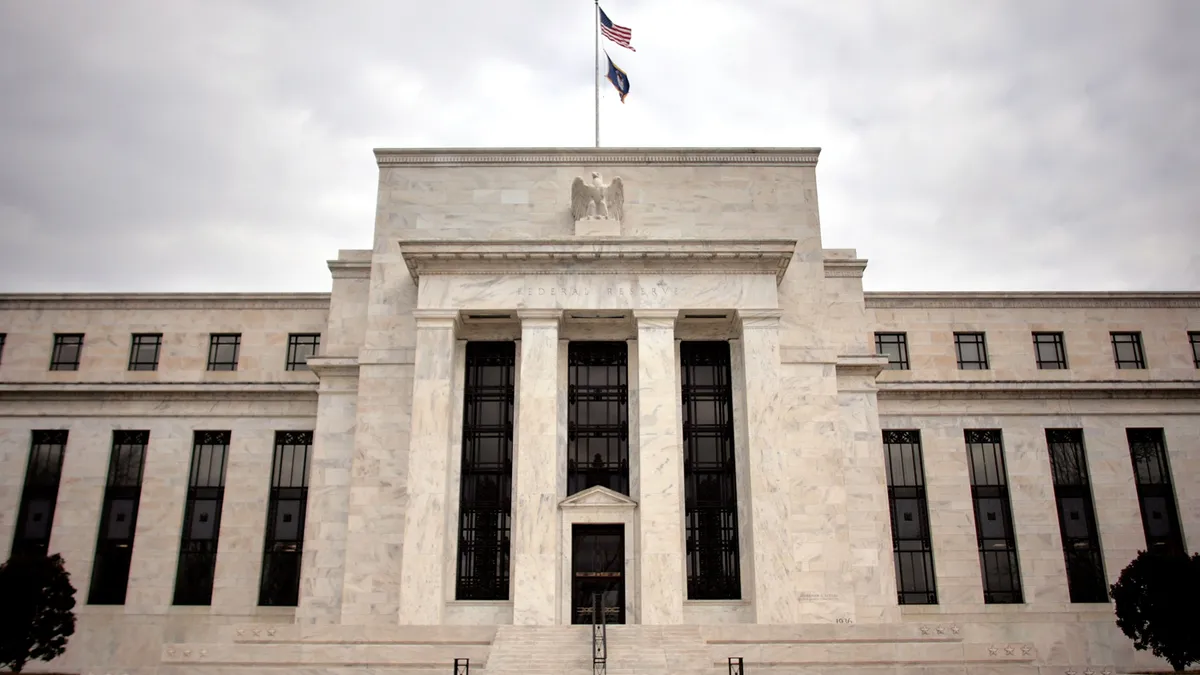Before engaging in crypto-related activity, banking organizations supervised by the Federal Reserve should notify their lead point of contact at the central bank to ensure the activity is legal, the Fed said in a statement Tuesday.
The directive is similar in tone and content to a statement the Federal Deposit Insurance Corp. (FDIC) issued in April to the financial institutions it oversees. The two regulators even use the same adverb — “promptly” — to describe how soon they would like to hear from banks that have already begun engaging in crypto activities but may not have alerted the agency.
The Office of the Comptroller of the Currency (OCC), too, issued a letter in November 2021 touching on banks’ responsibility with crypto activities. Unlike the OCC’s letter, the Fed’s guidance from Tuesday does not outline which activities are legal. Rather, banks “must analyze the permissibility of such activities under relevant state and federal laws and determine whether any filings are required under federal banking laws,” the central bank said, adding that it should consult its Fed contact with any questions.
By contrast, the OCC’s November letter asserted that earlier guidance — allowing banks to provide crypto custody service, allowing banks to use blockchain technology and stablecoins for payments, and addressing the cash reserves that back stablecoins — delineate what is permissible, provided the OCC gives its non-objection to that activity before a bank engages in it.
That notion, in itself, was a bridge too far for Sen. Elizabeth Warren, D-MA, and three other senators, who asked the OCC to rescind the interpretive letters upon which that November guidance is based.
By not specifically spelling out Tuesday which activities are permissible, the Fed presumably keeps itself safe from lawmaker scrutiny.
The central bank Tuesday urged financial institutions under its purview to “have in place adequate systems, risk management and controls” before conducting crypto-related activity. The systems should be able to “identify, measure, monitor, and control the risks associated with such activities on an ongoing basis,” the Fed said, and cover operational risk from evolving technologies, hacking, fraud, theft and third-party relationships; financial risk; legal risk; and compliance risk, such as Bank Secrecy Act and anti-money laundering requirements. Crypto-related activity should also meet consumer protection laws, the central bank said.
For its part, the Fed said it will “provide relevant supervisory feedback, as appropriate, in a timely manner,” and invited banks to send questions using the regulator’s public website. It also encouraged state-regulated banks to notify their supervising agency before engaging in crypto-related activity.
“The emerging crypto-asset sector presents potential opportunities to banking organizations, their customers, and the overall financial system,” two Fed officials wrote in Tuesday’s statement. “However, crypto-asset-related activities may pose risks related to safety and soundness, consumer protection, and financial stability.”
Those threats encompass the crypto space’s “nascent and evolving” technology — risks that are “particularly heightened” with “open, permissionless networks,” the officials wrote.
The central bank also pointed to the risk of crypto-related money laundering and terrorism financing, citing “limited transparency” associated with some assets.
The Fed touched on consumer protection, too — citing price volatility, misinformation, fraud and theft or loss of assets as risks, and specifically called out bankruptcy as a threat. Sizable crypto firms including Celsius and Voyager Digital are currently navigating that process.
The Fed also cited “destabilizing runs and disruptions in the payment systems” as a potential consequence of large-scale stablecoin adoption.
“Given the heightened and novel risks posed by crypto assets, the Federal Reserve is closely monitoring related developments and banking organizations’ participation in [such] activities,” the Fed said Tuesday.














